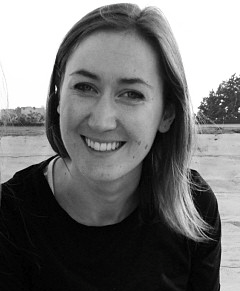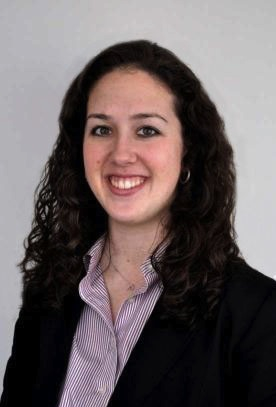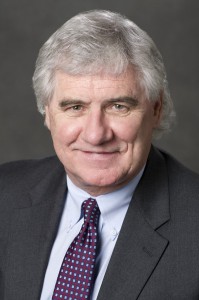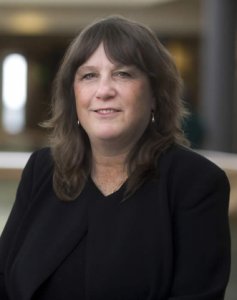Contributor: Alice Liu
Work and Life is a two-hour radio program hosted by Stew Friedman, director of the Wharton Work/Life Integration Project, on Sirius XM’s Channel 111, Business Radio Powered by The Wharton School. Every Tuesday from 7 to 9 PM EST, Stew speaks with everyday people and the world’s leading experts about creating harmony among work, home, community and the private self.
On Work and Life, Stew Friedman spoke with current Wharton MBA students about how young women are thinking about their careers, families and future lives.
In the second segment, Friedman spoke with Kristina Milyuchikhina (WG ’14) and Meaghan Casey (WG ’15), about what it’s like to start a family while in business school and the importance of choosing a partner who not only shares parenting care, but also shares the same values and ambitions. Following are edited excerpts of Milyuchikhina and Casey’s conversation with Friedman.
Stew Friedman: Kristina, I’d like to start with your story. Unlike the other three students, you just gave birth last semester. How did you actually make it work here at Wharton?
 Kristina Milyuchikhina: When I got into the Wharton MBA program, I was recently married and one of the important questions for me was to decide whether school fit in my plans to start a family. After discussions with my husband, we agreed that we would try to do both. I was able to leverage the University of Pennsylvania’s amazing medical facilities, an insurance plan that covers maternity, and the course match system at Wharton which allows you to construct your perfect schedule.
Kristina Milyuchikhina: When I got into the Wharton MBA program, I was recently married and one of the important questions for me was to decide whether school fit in my plans to start a family. After discussions with my husband, we agreed that we would try to do both. I was able to leverage the University of Pennsylvania’s amazing medical facilities, an insurance plan that covers maternity, and the course match system at Wharton which allows you to construct your perfect schedule.
SF: Was the birth scheduled so that you were able to control the timing?
KM: It was a natural birth so it wasn’t scheduled, but it happened during fall break when I was done with finals. I missed only two classes, and I was back to school the next day.
SF: What was it like coming back to the classroom two days after giving birth?
KM:  Well my friends at school were shocked, but they were very welcoming. But it’s not only about support, it’s also about preparation. For example, getting into business school is a long process, and you have to prepare for it. In many ways, starting to have a family is a similar process, and you can prepare yourself for it as well. I did an enormous amount of research. I researched everything from facilities to logistics to apartments. I was plenty ahead in my course load. I was working with the MBA Program Office to get them ready to help me collaborate with professors if I missed any classes.
Well my friends at school were shocked, but they were very welcoming. But it’s not only about support, it’s also about preparation. For example, getting into business school is a long process, and you have to prepare for it. In many ways, starting to have a family is a similar process, and you can prepare yourself for it as well. I did an enormous amount of research. I researched everything from facilities to logistics to apartments. I was plenty ahead in my course load. I was working with the MBA Program Office to get them ready to help me collaborate with professors if I missed any classes.
SF: So you really took control of those things that could be controlled.
KM: Exactly. Often in life when you see something happen easily, there is usually a huge amount of preparation standing behind it. That was my case.
SF: Meaghan, what brought you here to business school?
Meaghan Casey: I didn’t originally intend on pursuing a career in business. I am really motivated by social impact work, and for the past two years I worked with social impact entrepreneurs and non-profits in Washington D.C. and India. I came to business school because I really wanted to gain some of the skills and education that I felt could help make me credible so that I could more effectively continue living my purpose.
SF: What do you mean by living your purpose? What is your purpose?
MC: I think right now my answer to that is I would love to work in organizational development. I did management consulting for three years and then social impact for two years so I saw the very different work environments first hand. I experienced very female-empowered to very male-dominated, and from very stressful and chaotic to very inspirational. Most recently, the entrepreneurs I had been working with had designed value-driven businesses where everyone from the bottom to the top of the organization was passionate about and empowered by their work. I thought to myself, “When I go to business school in the next two years, how can I learn to create a positive and productive workplace where people really feel empowered?”
SF: What are you being exposed to here at Wharton that helps you see the possibilities for greater freedom of opportunities for both men and women in the workplace?
KM: The Wharton MBA experience has been life-changing for me. The exposure to the tools, professors, and knowledge here is the best in the world. I’m focusing on three majors, because I realize that in the area where I want to be successful and create impact – corporate business development and strategic development – I have to be able to understand so many distinct issues that move businesses. Wharton is the perfect place to gain this kind of knowledge as well as the tools that will allow me to create change.
SF: Meaghan, as you think about your own personal future, what do you think about the “shared care” model – having women and men share responsibilities in their partnership?
MC: I love it. I think it’s fantastic, and I also think that more men should feel more confident and empowered to be advocates of shared parenting.
SF: How do we get there?
MC: I think leading by example is always effective, so I’d call on fathers – no matter where they are in their children’s development – who are holding back from developing stronger relationships with their wives or their children to let themselves step into that role and let it be known at their companies how they are integrating their work and their life. I think women do a great job role modeling this all the time, and many men do too, but I think that they can take a stronger stage.
SF: Kristina, is it a shared-care model with you and your husband? How do you manage this?
KM: First of all, it starts from the beginning. He is a partner at his company and was able to negotiate his relocation to Philly. That was step number one, because to have a little kid at Wharton without the support of your husband or in a long-distance relationship would be very tough and not realistic. He was also able to negotiate flexible work hours – sometimes he works from home, and that works out very well. The key here is to pick your life partner wisely, because while picking a career and a business school is great, we spend our lives with our families. It really is a very important choice.
SF: This is something that Sheryl Sandberg advocates – that the most important career decision you can make is who you marry.
KM: Exactly. That’s why it should be a person who shares your values, desires, and ambitions, and who also wants to have it all while you’re still young and strong. Someone who is willing go through some sleepless nights to get your family to where you both want it to be.
MC: I think you’re spot on. I think Jessica DeGroot, the radio guest from last week, said start the conversation early on in a collaborative way, talking through what kind of life do we want to build together as partners, what kind of family do we want to have, and how are we going to make time for our relationship and our family in a mutually beneficial way.
SF: What do you hope the world will look like by the time your newborn son is your age?
KM: I hope that by that time there will be more awareness for women who want to have healthy families and healthy careers to be able to combine both. For example, like me, women can consider starting families while in a top MBA program. I hope that there will be more support, not only on the side of their partners, but also on the side of business schools as well. I hope that by that time we will have the most talented women applying for business schools and not sacrificing their ambitions because of their fears that they will not be able to fit family in later on.
MC: I’m very inspired by Kristina’s story. Knowing that she’s been able to do both is the biggest sign of changing times. I think that the more people that integrate work and life successfully and the more normalized it becomes, the better off we’ll be in achieving 50/50 – the best talent coming from both men and women in corporate America.
Join Work and Life next Tuesday, February 25 at 7 PM on Sirius XM Channel 111 for conversations with Deika Morrison (W ’94, WG ’08) and Jerry Jacobs, Professor of Sociology at the University of Pennsylvania,about work and life in different labor markets. Visit Work and Life for a full schedule of future guests.
About the Author
 Alice Liu is an undergraduate senior studying Management at The Wharton School and English (Creative Writing) at the College of Arts & Sciences.
Alice Liu is an undergraduate senior studying Management at The Wharton School and English (Creative Writing) at the College of Arts & Sciences.
 For me it was about career progression. I was at a certain level in my career where I was ready to make the next move, and I wanted to make sure that I had the best education possible to help me get to that next level.
For me it was about career progression. I was at a certain level in my career where I was ready to make the next move, and I wanted to make sure that I had the best education possible to help me get to that next level. SF: Who are the important people – the key sponsors or mentors – who have influenced you and helped you get here?
SF: Who are the important people – the key sponsors or mentors – who have influenced you and helped you get here? Jessica DeGroot founded
Jessica DeGroot founded  Liz Stiverson is a 2014 MBA candidate at The Wharton School. Reach her in the comments section of this post.
Liz Stiverson is a 2014 MBA candidate at The Wharton School. Reach her in the comments section of this post. Katrina Alcorn: Businesses have an incredible opportunity to create desperately needed change in the American workplace. Employers need to start looking at how to empower their employees with more autonomy. I know from having been a manager that this idea can be really scary. You might feel, for example, as though your job is to make sure that everyone is in their seat and working hard. But that’s not necessarily the best way to go about it. Just seeing someone present in the office doesn’t mean we’re getting the most out of our employees, nor does babysitting them mean we’re being good managers. One interesting new management strategy is the high-performance or results-oriented work environment. The idea is that you can empower employees – whether they are knowledge workers or people who work on a factory floor – to make the best decisions and do the best job that they can. In this model, employees have control, instead of the boss is telling everyone what to do. When people are empowered and have real responsibility, they find their work is a lot more meaningful. It’s also great for morale because no grown-up wants to be babysat.
Katrina Alcorn: Businesses have an incredible opportunity to create desperately needed change in the American workplace. Employers need to start looking at how to empower their employees with more autonomy. I know from having been a manager that this idea can be really scary. You might feel, for example, as though your job is to make sure that everyone is in their seat and working hard. But that’s not necessarily the best way to go about it. Just seeing someone present in the office doesn’t mean we’re getting the most out of our employees, nor does babysitting them mean we’re being good managers. One interesting new management strategy is the high-performance or results-oriented work environment. The idea is that you can empower employees – whether they are knowledge workers or people who work on a factory floor – to make the best decisions and do the best job that they can. In this model, employees have control, instead of the boss is telling everyone what to do. When people are empowered and have real responsibility, they find their work is a lot more meaningful. It’s also great for morale because no grown-up wants to be babysat. Morgan Motzel is an undergraduate junior in the Huntsman Program in International Studies and Business at Penn focusing on Management and Latin America.
Morgan Motzel is an undergraduate junior in the Huntsman Program in International Studies and Business at Penn focusing on Management and Latin America. Marci Alboher: Encore.org is a non-profit organization spearheading the new movement of later-in-life work that combines social purpose with continued income and personal meaning. We help people who want to use the later part of their careers to make a difference in their communities and in the world. People are hitting mid-life and saying, “life is short, I want to make sure that what I do matters and that what I do contributes to the world”. At Encore, we do a lot of programs about second careers with meaning.
Marci Alboher: Encore.org is a non-profit organization spearheading the new movement of later-in-life work that combines social purpose with continued income and personal meaning. We help people who want to use the later part of their careers to make a difference in their communities and in the world. People are hitting mid-life and saying, “life is short, I want to make sure that what I do matters and that what I do contributes to the world”. At Encore, we do a lot of programs about second careers with meaning. In a sea of macho stereotypes, new voices are changing the face of manhood. One of them, a niche men’s lifestyle website called
In a sea of macho stereotypes, new voices are changing the face of manhood. One of them, a niche men’s lifestyle website called  Arjan Singh is an undergraduate sophomore studying economics at The Wharton School.
Arjan Singh is an undergraduate sophomore studying economics at The Wharton School. On
On  Ellen Kossek: I was a PhD student at Yale. I had been married about three years, and right in the busiest time of my fourth year of school, I was pregnant and about to have my first child. If I had taken any time off, I would have been stigmatized and I would have lost my fellowship, so I stuck it out. I think a lot of our choices as leaders stem from what happens in our own lives. I became passionate about wanting to make organizational changes to help others. I focused on this in my dissertation, and I never looked back.
Ellen Kossek: I was a PhD student at Yale. I had been married about three years, and right in the busiest time of my fourth year of school, I was pregnant and about to have my first child. If I had taken any time off, I would have been stigmatized and I would have lost my fellowship, so I stuck it out. I think a lot of our choices as leaders stem from what happens in our own lives. I became passionate about wanting to make organizational changes to help others. I focused on this in my dissertation, and I never looked back. Alice Liu is a senior studying Management at The Wharton School and English (Creative Writing) at the College of Arts & Sciences.
Alice Liu is a senior studying Management at The Wharton School and English (Creative Writing) at the College of Arts & Sciences.  On
On  Kate Mesrobian is a sophomore in the Huntsman Program in Business and International Studies at the University of Pennsylvania.
Kate Mesrobian is a sophomore in the Huntsman Program in Business and International Studies at the University of Pennsylvania.